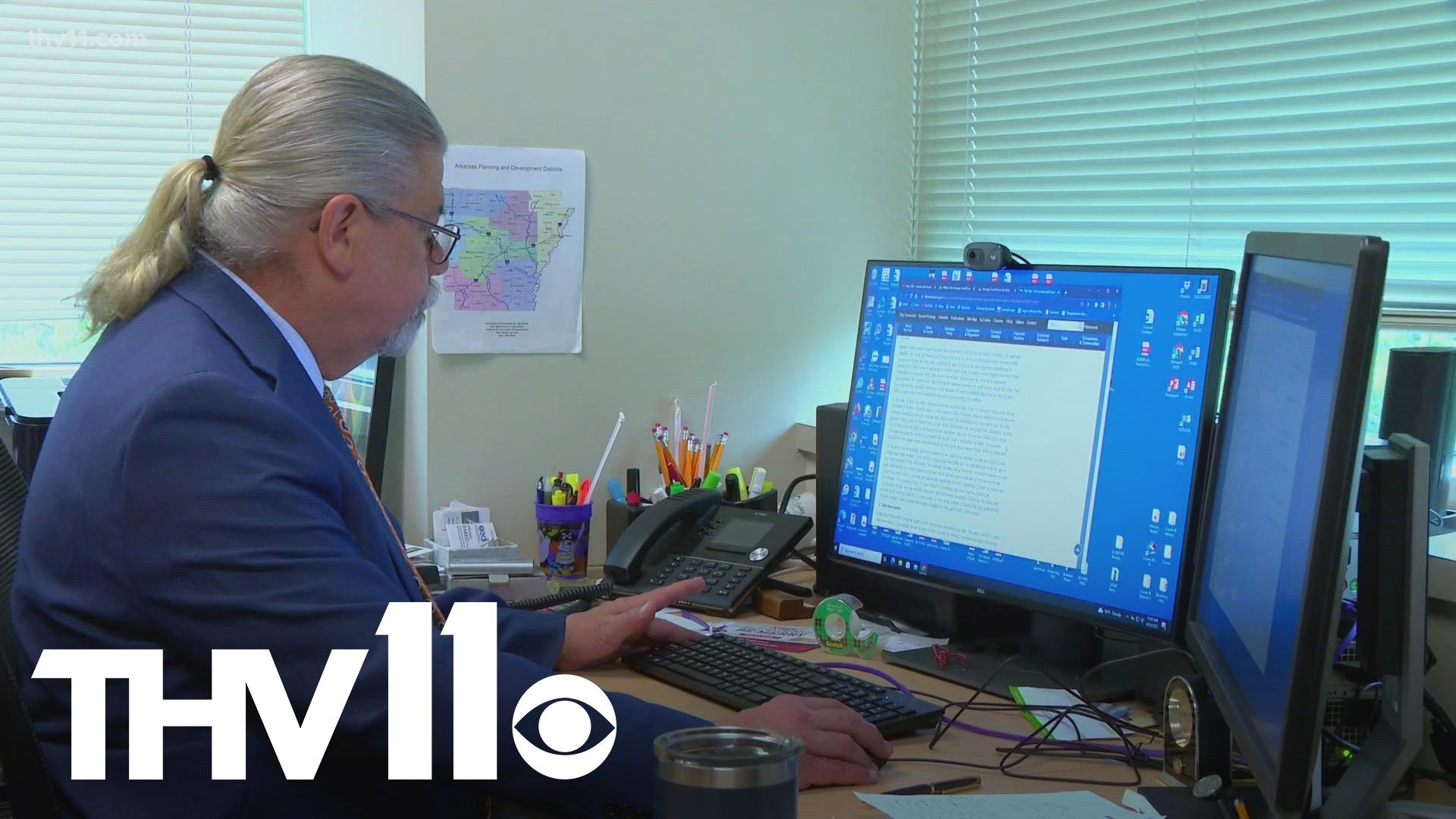LITTLE ROCK, Ark. — So far in 2023, there have been three large bank failures.
Recently, a major bank just failed in the month of May and now these failures are leading to uncertainty and concern.
So one of the biggest questions now: “Is my money safe?”
Google searches for "will there be a recession soon" have spiked 140% in recent weeks, putting it near the top of rising searches on the site. This increase is just one indicator of the growing anxiety over the nation's economy.
“There's a certain amount of emotional attachment to those kinds of issues,” Chief Economist Michael Pakko said.
The collapse of three major banks in recent months is fueling fears of potential widespread impact.
Back in March, Silicon Valley Bank in California lost $209 billion and Signature Bank in New York lost $110 billion.
In the month of May, First Republic Bank based in California lost $212 billion. This amount made it the largest banking loss since Washington Mutual back in 2008.
Financial experts are quick to point out what likely led to the fallout.
“Silicon Valley Bank had a specific mix of assets and liabilities that just didn't work in the current environment,” Pakko explained. “The problem was, when people started asking for their money out of the bank, the bank was in a situation where they had to sell those assets at a loss and that got them into some financial trouble.”
Mark Wilson, President and COO of First Arkansas Bank and Trust, has said that Signature bank dealt with many risky ventures.
“Signature Bank, they had a large portion of their investments in crypto currency and related businesses and that is just a very risky venture. It's not regulated,” Wilson said.
Pakko and Wilson agree that the issues these big banks experienced are not what you would find in local, day-to-day banks.
“Community banks look at long term investments and long term stability and long term investment in their communities and they're going to be around for a good long while,” Wilson said.
That's how more traditional banks keep your money safe. Pakko said state and federal regulators also have safety measures in place.
Regulators take over failed banks and secure the everyday depositor’s money, which can help prevent trickle down bank problems.
“There's really a mechanism in place to really keep that from spreading and I don't think that the banking system is unhealthy at all, it's quite sound,” Pakko said.
Wilson said banks in Arkansas are balanced and well.
“Our economy is pretty solid in the state of Arkansas,” Wilson said. “We have a wide range of industries, we don't have one industry in the state of Arkansas that controls everything.”
Despite what Wilson described as stability, that doesn't prevent concerns and a spike in searches when people see headlines like three bank failures just this year.
“There are always scares and things that go on in, in the banking industry,” Wilson said.
Amid concerns of the banking industry, Wilson hit on if a bank failure could be likely in Arkansas.
“Banks in Arkansas are solid. We are well regulated and have been long established. We know what the risks are,” Wilson said. “We don't do things that are super risky or just what's cool and popular at the moment. We do what's best for the long term.”
Concerns in the banking industry are similarly reflected in concerns for the nation’s economy. Pakko points to current reports showing Arkansas ahead of most states.
“A reading on unemployment in Arkansas shows that it is the lowest on record since they began keeping these statistics in 1976,” Pakko said
Not only that, but he said a recession, if one were to happen, would likely be slight.
“I'm seeing it less and less likely that we're going to see a recession of any type on the horizon and if we do, I think it will be considered very mild by the standards of previous recessions. Certainly [mild] compared to the great financial collapse of 2009,” he said
Pakko lends advice to those worried about their money, saying keeping your money in banks is safe, and money is generally safer in well-established banks.

